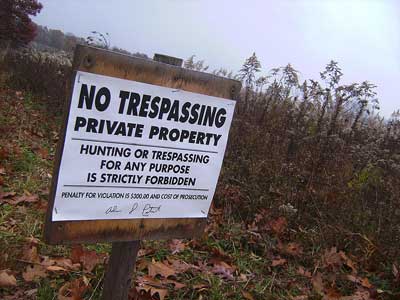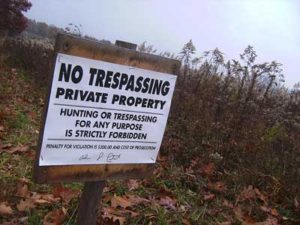
Can I Trespass On My Own Land?
Here’s the scenario: You own 40 acres of land, 20 acres of which is leased to a local farmer, and 20 acres in woodland. You and the farmer verbally discuss the lease, with negotiations focused on rental rate and payment schedules. You’re both satisfied, but the conversation never covered your plans to hunt the leased land with family. After all, you own the land, right?

That fall, a very uncomfortable conversation ensues between your family members hunting on the leased land and the farmer who arrived to harvest his crop.
Are you and your family members trespassing on the leased land?
Answer: Yes, it can be argued that you and your family are trespassing on the leased acres. Obviously, prosecution is not in the best long-term interests of the farmer. However, the situation emphasizes the point that you should never assume anything, and you should get everything in writing.
A verbal lease agreement, unless written down, dictates that the tenant “has the right to exclusive possession of the premises [land]” and your entry is limited to a few, specific activities (see WI Statute below), none of which protect your right to recreation and hunting.
In our scenario, since hunting access was never discussed and agreed upon, you would need prior permission from the farmer to hunt the leased land. Lease agreements, however informal, exchange significant rights, protected by state statute. Thus, all leases should be written documents and tailored to fit your particular circumstances.
Wisconsin State Statute: Chapter 704 Landlord/Tenant
704.05 Rights and duties of landlord and tenant in absence of written agreement to contrary.
(2) Possession of tenant and access by landlord. Until the expiration date specified in the lease, or the termination of a periodic tenancy or tenancy at will, and so long as the tenant is not in default, the tenant has the right to exclusive possession of the premises, except as hereafter provided. The landlord may upon advance notice and at reasonable times inspect the premises, make repairs and show the premises to prospective tenants or purchasers; and if the tenant is absent from the premises and the landlord reasonably believes that entry is necessary to preserve or protect the premises, the landlord may enter without notice and with such force as appears necessary.
